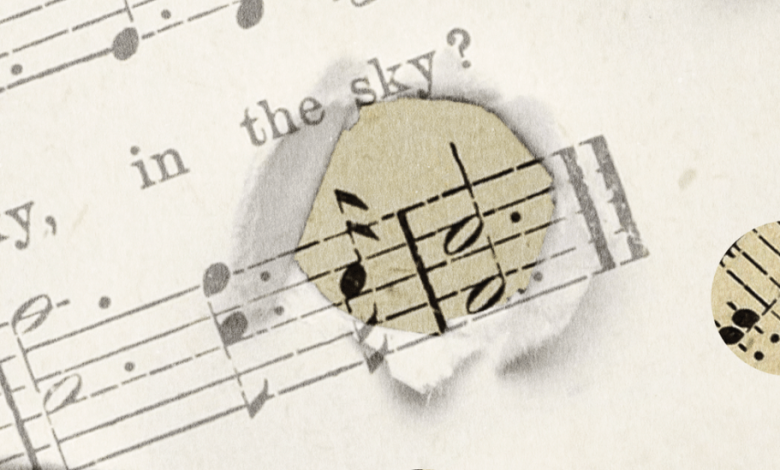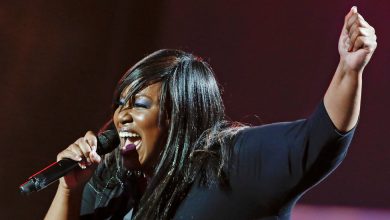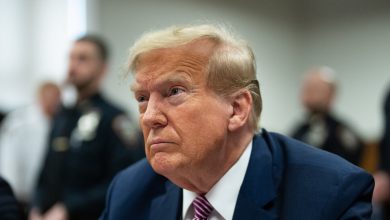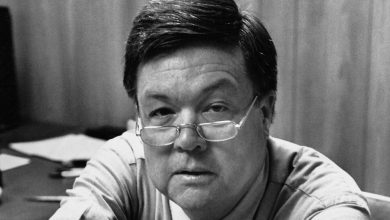A School Shooting Came to Nashville. Country Music Can Help Stop the Next One.

They say we love our guns down South, and it’s true they are part of the pageantry of our beloved southland, in tune with the equally nostalgic heartstrings we pull for mother, God, freedom and country. Country music plays a central role in forming the South’s gun mythology, from songs like “Big Iron” to “A Country Boy Can Survive.” Seven nights a week in Nashville, you can hear any number of country upstarts remind the tourists in the honky-tonk bars on Lower Broad that Johnny Cash shot a man in Reno “just to watch him die.”
But all the parents in Nashville, including me, know what they were doing shortly after 10 a.m. on Monday, March 27. When shots rang out inside Nashville’s Covenant School and three adults and three children were murdered, the tragedy exposed the deep hypocrisy of a musical genre at once so beholden to Christian principles and yet so unwilling to stand for peace. The 377th school shooting since Columbine happened on a Christian campus in Nashville and, as a musician, writer and historian, I now believe that country music has a unique opportunity to shepherd conservative Southerners, a demographic essential to the passage of any meaningful legislation, to the table to negotiate gun reform.
My band, Old Crow Medicine Show, which first struck up a tune in Nashville 25 years ago and was inducted into the Grand Ole Opry in 2013, has always played a fringe role on the country scene. Though we lean left politically, our signature song, “Wagon Wheel,” has become a mainstream anthem for audiences that consistently lean right. When I hear it blasting from a pickup truck, I often spy an N.R.A. sticker on the bumper. In my experience, country stars tend toward centrism. The right-wing groups we most often encounter are not our bandmates but our audiences.
What the South needs now is an anti-assault-weapons movement driven by voices from the center, by interdenominational faith leaders, by students — Nashville is called the Athens of the South because it is teeming with scholars at its many colleges — and by country singers who are tired of bending to the whims of fearmongers and who are ready to speak from their platforms to an impressionable audience.
Conservative musicians are always vocal when it comes to the culture wars, but stars with moderate views tend not to weigh in publicly. The motive is genuine: We don’t want to offend anyone. But in times as dire as these, silence is complicity. It’s time for country music makers to use their platforms to speak candidly to their conservative audiences. Our outrage needs to move from the green room to center stage.
Now that the tragedy of school gun violence has come to Nashville, our city is poised to help lead the nation toward effective regulations such as red-flag and safe-storage laws, a ban on military-grade weapons, stricter background checks and the repeal of permitless carry laws.
Exactly one week after the shooting at Covenant School, the students of Episcopal School of Nashville — a school I helped found eight years ago on the Judeo-Christian principles of peace, inclusivity and love — walked out of their classrooms, joining a longstanding tradition of peaceful demonstration in our city.
The street that runs past the Ryman Auditorium, the historic home of the Grand Ole Opry, was recently renamed Rep. John Lewis Way, after the civil rights leader who was arrested for the first time while protesting in Nashville. Many architects of the civil rights movement, such as James Lawson and Diane Nash, were active in this city, where the political climate made it more palatable than places further south. What might have gotten you lynched in Alabama or firebombed in Mississippi felt somehow safer in Nashville, a city of church spires and universities.
Nashville remains a bellwether city where right and left can conjoin, where musicians and artists test the boundaries of the South’s social strictures and where Christianity of both deeply evangelical and progressive varieties flourishes.
If conservative Christian gun enthusiasts need a calling to lay down assault rifles after the tragedy at Covenant School, they need look no further than Isaiah 2:3-4, the Scriptures’ peace crusader passage, in which swords are beaten to plowshares and spears to pruning hooks. If they need a soundtrack, they need only crank up Johnny Cash’s “Sunday Morning Coming Down,” written by Kris Kristofferson, a sharpshooting veteran turned peace activist. In the song, a spiritual journey during a sabbath-day hangover returns the singer to something that he’d “lost somehow somewhere along the way.” The country community has lost its way if it thinks owning an AR-15 is more important than a child’s right to safely attend school.
At a vigil in front of City Hall, just 48 hours after the shooter, who was being treated for an emotional disorder, arrived at Covenant School armed with three guns, including an AR-15 military-style rifle — all of them legal in Tennessee and purchased locally — I stood in front of a grieving audience alongside my own third grader, my son. Earlier that day at Episcopal School, both of my kids had experienced their first active shooter-training drill. My daughter complained to me that she’d gotten an unlucky position at the desk her teacher instructed them to crawl behind. “If there had been a shooter, I probably would have gotten shot,” she said with a nervous laugh.
Before entering the semicircle of supporters onstage at the vigil, which included the first lady, Jill Biden, and Nashville’s mayor, John Cooper, my son and I practiced the music we were set to perform. He played the harmonica while I softly strummed on the banjo, kneeling near the City Hall elevator banks, not far from metro special operations police officers who carried semiautomatic long guns that are nearly identical to AR-15s, legal for purchase by all eligible Tennessee citizenry. My son didn’t seem to notice how close he was to these heavily armed figures in body armor. He was too focused on his harmonica.
When my son and I were led to the microphone, I found it difficult to hold back my tears as I sang the country music hymn “Will the Circle Be Unbroken.” It’s a song that’s common at funeral processions, its lyrics full of references to heaven and loved ones long missed.
As I sang alongside my own third grader — one just as purely innocent as the ones whose lives were snuffed out earlier that week — a powerful thought came over me: What if Nashville could be the last stop on this terrible runaway train of school violence, the place where the cycle could finally be broken?
Ketch Secor is a Nashville resident and a founding member of Old Crow Medicine Show, which won a Grammy for best folk album in 2015.
The Times is committed to publishing a diversity of letters to the editor. We’d like to hear what you think about this or any of our articles. Here are some tips. And here’s our email: [email protected].
Follow The New York Times Opinion section on Facebook, Twitter (@NYTopinion) and Instagram.




